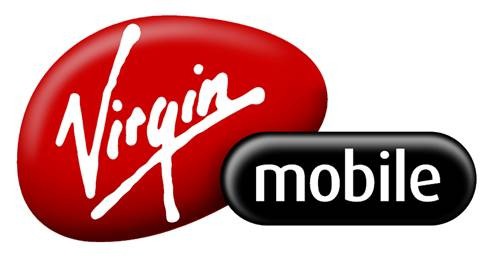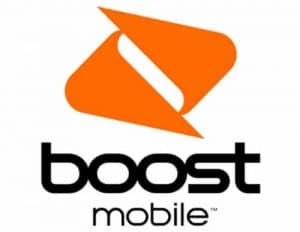- Taxes and fees will now be INCLUDED in your new Boost Mobile plan.
- 6,800 Boost Mobile locations nationwide for your convenience.
- 99% nationwide coverage with voice roaming.
- Boost Perks, a reward program exclusive to Boost Mobile customers.

Sprint’s prepaid mobile division
Sprint will be closing down its prepaid Virgin Mobile service in February and will shift customers to its Boost Mobile brand instead and drop its standalone Mobile Broadband service.
The wireless company has virtually ignored Virgin Mobile at least as long as Sprint has been in negotiations to merge operations with T-Mobile USA. The Virgin Mobile website has also been neglected, with no media releases for almost two years and over two years of unchanged rates. Last October, Sprint dropped its last major retail arrangement with Walmart that allowed Virgin Mobile devices and airtime to be sold in Walmart stores. Best Buy and several grocery chains ended sales of Virgin Mobile devices even earlier. As of late last year, new customers could only sign up for Virgin Mobile through its own website, a sure sign Sprint was prepared to accept customer attrition and was likely to pull support for the prepaid brand.
Sprint inherited Boost Mobile after it acquired Nextel in 2005. Boost Mobile had offered its own prepaid service over Nextel’s push-to-talk network beginning in 2001. After Sprint shuttered Nextel’s network, it operated both Virgin Mobile and Boost Mobile on Sprint’s network as competing prepaid wireless services. In the last two years, Sprint apparently decided it only needed to support a single brand, and quietly began shifting its marketing exclusively towards Boost.
This week, Sprint confirmed it was shutting down the Virgin Mobile brand in the U.S. in a prepared statement.
“We regularly examine our plans to ensure that we’re offering the best services in line with our customer needs. Beginning on the week of Feb. 2, we will be moving Virgin Mobile customer accounts to our sister brand Boost Mobile – consolidating the brands under one cohesive, efficient and effective prepaid team. In most circumstances, customers can keep their current phone and will receive a comparable or better Boost Mobile service plan with no extra cost.”
 The transition will strand Virgin Mobile Broadband and Broadband2Go customers that use a standalone device for mobile broadband service, often used by RV-traveling customers or those in rural areas. Sprint has decided that Boost Mobile will not serve those customers, so mobile data service provided over standalone hotspot devices will end next month.
The transition will strand Virgin Mobile Broadband and Broadband2Go customers that use a standalone device for mobile broadband service, often used by RV-traveling customers or those in rural areas. Sprint has decided that Boost Mobile will not serve those customers, so mobile data service provided over standalone hotspot devices will end next month.
An FAQ on Virgin Mobile’s website provides some other insight:
Customers were notified in early January about the decision to discontinue Virgin Mobile USA service plans. At that time, we informed customers of the transfer to Boost Mobile. In most instances, your existing account will be transferred to Boost Mobile with your device, and a comparable or better Boost Mobile service plan at no extra cost to you. You will keep your phone number, and your monthly payment date will remain the same as long as you continue on time payments until the transfer to Boost Mobile is complete.
At this time, paying for your service through your PayPal account will not be supported on your new Boost Mobile account and therefore, Paypal will be removed as a registered payment vehicle 4-5 days prior to the migration date. Customers enrolled on a payment method or AutoPay with PayPal accounts will need to re-establish payment options and re-enroll in Autopay using a major credit/debit card. Boost Mobile also does not accept 45/90 Day Top Up Payment Option for service payments. Customers enrolled in 45/90 Day Top Up Payment option will need to re-establish payment option and re-enroll in a Low Balance Autopay option using a major credit/debit card prior to transition in order to avoid service interruption. If your account is impacted by either of these payment methods, we will notify you with instructions for how to make changes prior to transfer date in order to avoid service interruption. Please note the Texas LIDA credits will no longer be issued following transfer to Boost Mobile.
If you have a Mobile Broadband (MBB) device, this device and service will not transfer to Boost Mobile.
In order to avoid service interruption for your MBB, you will need to switch your service to a new provider. If you choose to consider Boost Mobile, please visit Boostmobile.com or your nearest Boost Mobile store for information and current promotions.
The wind down of Virgin Mobile may also serve as a bit of housekeeping as Sprint prepares to merge with T-Mobile. A condition of that merger is spinning off Sprint’s prepaid services including Boost Mobile service to DISH Network to create another viable national wireless carrier to protect competition. Dropping Virgin Mobile now is likely to provide an easier transition for DISH, which would launch operations with a combination of Virgin Mobile and Boost Mobile customers.


 Subscribe
Subscribe NEW YORK (Reuters) – Executives from Sprint Corp testified on Monday that the U.S. wireless carrier has struggled to improve its network, hindering its growth and underscoring the need to merge with larger rival T-Mobile US Inc.
NEW YORK (Reuters) – Executives from Sprint Corp testified on Monday that the U.S. wireless carrier has struggled to improve its network, hindering its growth and underscoring the need to merge with larger rival T-Mobile US Inc.
 Many of the same civil rights groups that regularly advocate their support of giant corporate telecom mergers are back once again to
Many of the same civil rights groups that regularly advocate their support of giant corporate telecom mergers are back once again to  Verizon, AT&T, and T-Mobile’s 5G launches are blazing fast, when you can find a signal, but your phone will also get blazing hot while using it.
Verizon, AT&T, and T-Mobile’s 5G launches are blazing fast, when you can find a signal, but your phone will also get blazing hot while using it. NEW YORK (Reuters) – Charter Communications submitted a proposal to the Justice Department to buy telecom assets being sold under the T-Mobile US and Sprint Corp combination, but never heard back from the agency, three sources familiar with the matter said.
NEW YORK (Reuters) – Charter Communications submitted a proposal to the Justice Department to buy telecom assets being sold under the T-Mobile US and Sprint Corp combination, but never heard back from the agency, three sources familiar with the matter said.